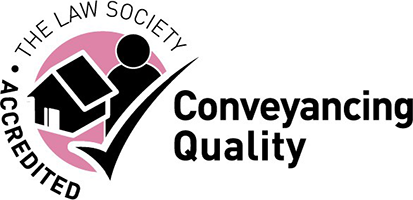While being approached for informal legal advice by family and friends can seem harmless, you should consider the pros and cons before providing off-the-cuff advice as the intention to help can put you in great risk of discipline.
In the new digital era, informal legal advice can be requested through all forms of communication; a face to face casual conversation with a friend, an email from an acquaintance or a phone call from a family member. However, giving legal advice to someone other than your client takes away time, resources and dedication to your current client base and it also carries a risk of liability.
DTM Legal explains the dangers of giving informal legal advice to your family and friends.
The Relationship Factor
When asked a legal question by a friend, it may appear that you are merely giving advice to someone close to you, but you have to be aware when a relationship becomes a lawyer-client relationship. The minute this relationship is formed, lawyers are bound by the rules of their professional responsibility.
The relationship begins when there is a mutual understanding that the client is going to confide in the lawyer and the lawyer is going to listen. The relationship may commence even if there is nothing in writing and even if no money has changed hands. Although there must be a mutual understanding that the client has engaged the lawyer and the lawyer has accepted representation, it is the lawyer’s responsibility to make it clear to the potential client when this has occurred, and when it has not.
Defining the relationship with those seeking Informal legal advice from the beginning can avoid confusion and ethical issues down the road.
The Liability Factor
Providing casual legal advice to a family or friend can result in major liability, malpractice, or disciplinary action as the non-clients may have reasonably relied on the information given. Rather than put yourself at risk, make it clear to the non-client that though you are unable to offer them legal advice, you can refer them to legal resources intended to help those who maybe cannot afford representation.
The Money Factor
It is unreasonable for a family member or friend to expect you to provide your legal services for free. Continually taking telephone calls or responding to emails from those seeking help will begin to add up and the hours spent on this is a missed opportunity to devote your time and resources to your already existing and paying client base.
What Can You Do When asked for Informal Legal Advice?
Think before you speak
Before responding to someone close to you asking for help, think about the pros and cons of offering free informal legal advice as well as the resources you can safely send to your family and friends who are in need.
Take responsibility and communicate
Communication is key in these interactions. If a conversation is turning into professional work, it is the lawyer’s responsibility to either put a stop to it or make it clear that further discussion should take place in a more formal setting. Similarly, when the lawyer has no intention of representing a potential client, the lawyer has the responsibility to communicate that no lawyer-client relationship exists.
Do not give legal advice outside your field of expertise
Although it is obvious to lawyers that someone who works primarily in family law is not qualified to discuss commercial property in depth, it is not obvious to the average person asking. If you are asked for advice in an area outside your normal field, clearly indicate that fact: “I am not a commercial property lawyer and I do not know enough about commercial property to advise you.”
Refrain from giving a second opinion
If a family member or friend has a lawyer, resist the urge to give a second opinion. The fact is the other lawyer has spent a lot more time on the case than you and is familiar with a lot of facts that the person you’re speaking with may not have disclosed. Consider that before telling someone that you would handle a situation differently than that person’s lawyer.
Always follow up in writing
Restate what you advised, your understanding of the facts and the importance of obtaining competent legal advice.
Keep it professional
Make it clear to the person seeking your informal advice that they may have a legal problem and that they should consult with a lawyer about this. If they express that they would like you to be that lawyer, offer to schedule an appointment in your office and discuss what you will charge. If you decline representation or the family member or friend decides to hire another lawyer, remember that whatever the client told you is presumed to be in strict confidence.
You cannot share the information with your friends simply because you learned about it in casual conversation with someone close to you. If the other party reasonably believed the information was subject to the lawyer-client privilege, then it was.
Following DTM Legal’s advice will allow you to maintain successful relationships in your professional life and personal life without feeling bombarded with legal questions by those closest to you.
DTM Legal understands companies are best served by a long-lasting, proactive and collaborative relationship with a legal partner that is entirely focused on results. With a brilliant team of experienced professionals who provide the full spectrum of commercial legal advice, speak to us on 01244 354800.






